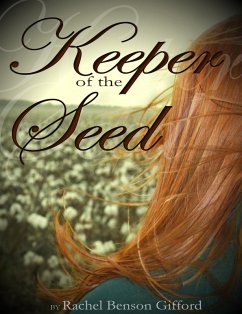
The White Rose of Memphis (eBook, ePUB)

PAYBACK Punkte
0 °P sammeln!
In "The White Rose of Memphis," William C. Falkner delves into the rich tapestry of Southern life, weaving a narrative that intricately examines themes of love, loss, and the haunting echoes of history. Set against the backdrop of Memphis in the early 20th century, Falkner's lyrical prose and vivid imagery capture the nuanced struggles of the characters, often mirroring the complexities of the social landscape of post-Civil War America. The book explores the intertwining destinies of its protagonists through a series of poignant vignettes, highlighting the resilience and fragility of the human...
In "The White Rose of Memphis," William C. Falkner delves into the rich tapestry of Southern life, weaving a narrative that intricately examines themes of love, loss, and the haunting echoes of history. Set against the backdrop of Memphis in the early 20th century, Falkner's lyrical prose and vivid imagery capture the nuanced struggles of the characters, often mirroring the complexities of the social landscape of post-Civil War America. The book explores the intertwining destinies of its protagonists through a series of poignant vignettes, highlighting the resilience and fragility of the human spirit amid societal upheaval. Falkner's literary style, influenced by Southern Gothic elements, employs symbolism and foreshadowing, rendering a haunting atmosphere throughout the pages. William C. Falkner, a descendant of the illustrious literary family, was deeply influenced by the Southern milieu in which he was raised. His foregrounding of character psyche and sense of place mirrors his own experiences and observations of a region marked by both beauty and tension. These personal insights, coupled with his scholarly engagement with Southern history, inform the emotional depth and historical context within this captivating narrative. Readers seeking a profound and evocative examination of love, identity, and cultural memory will find "The White Rose of Memphis" to be a compelling addition to their literary repertoire. Falkner's mastery of storytelling will resonate with anyone drawn to evocative tales rooted in place and history, making it essential reading for both aficionados of Southern literature and those exploring the human condition.
Dieser Download kann aus rechtlichen Gründen nur mit Rechnungsadresse in A, B, BG, CY, CZ, D, DK, EW, E, FIN, F, GR, H, IRL, I, LT, L, LR, M, NL, PL, P, R, S, SLO, SK ausgeliefert werden.













